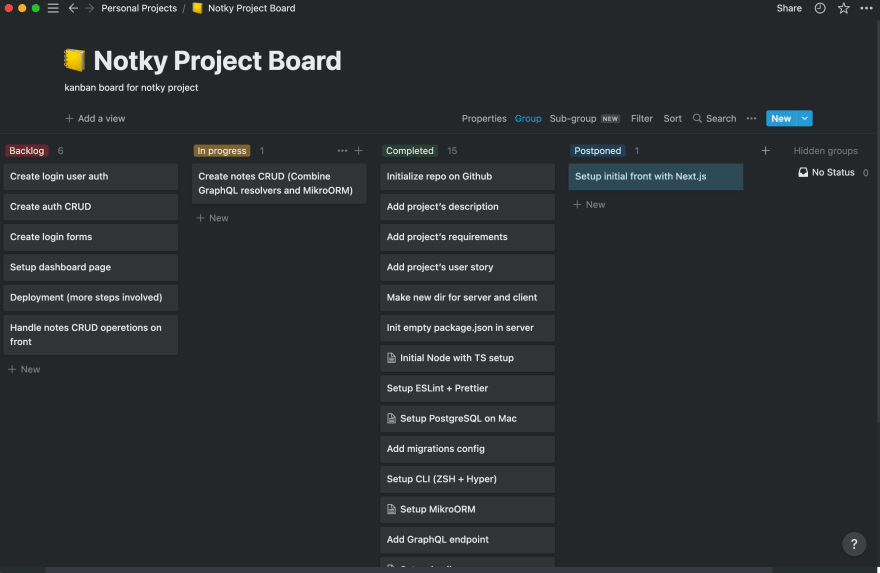In this post I'm going to share some of the tools I use to help me achieve sustain outcome and eventually get towards any ambitious goal.
TL;DR
I share three tools I'll use daily throughout this challenge - Anki, Notion and Pomodoro.
At the bottom section I summarize what I've done this day regarding the post title.
Without any further ado I'd like to share a link to Github :octocat: repository, the place from where I get ideas for creating flashcards - JavaScript Interview Questions & Answers.
You can use Anki https://apps.ankiweb.net/ as a tool while learning actually anything (in theory) from another language, guitar chords, geography or... programming 😉 There is a broad use of this tool among law or medical students.
Anki uses various learning techniques to help memorize terms for longer. It's backed by science (spaced repetition, active recall testing). You can learn more about impact it makes on learning process for CS students from this article.
So, there is this one tool and one thing it help me with - effective memorizing. The next one I'd to mention is a tool for planning strategies - Notion. Following this challenge I'll use it to structure my day to day work.
The screenshot above shows kanban board I've created to track my progress on current personal project. Kanban helps me a lot (even if I'm doing house chores sometimes I use similar boards to optimize my time).
I personally use Notion also to add some notes, make bullet lists, or even collect the reviews of books/podcasts I've completed.
The last tool on my today's list is an app from App Store Be Focused. It's basically a time tracker which uses broadly known technique - Pomodoro.
If you're not familiar Pomodoro uses structured time intervals (default is 25 minutes of work followed by 5 minutes of break, then after 4 full intervals there is a long break period 15/20 minutes and the whole cycle starts all over again. You can ofc customize this interval periods to your needs, try out what suits best for you. The most important part is - it works for me. Impact it can make is successively measure by scientists. Learn more on the official website.
I try to minimize the tool chain to keep me get going with the work I have, so these three tools I've mentioned suits me the most. From time to time I jump to something new for a little while as a refresher but that's my foundation.
According to the work I've done on the first day:
- I've practice some Ankies (general stuff about js fullstack),
- I've built crud operations for notes on the backend for my personal app,
- I've created 2 articles on dev.to
Today I'm going to:
- Spend at least 1 full hour our focusing on my project
- Spend at least 25 mins preparing flashcards on holacracy topic
- Spend at least 25 mins preparing flashcards on fullstack topic
- Study at least 20 Anki flashcards
- Spend at least 1 hour on Stephen Grider course on Udemy
- Read 1 full article on Medium.com
- Read book for at least 30 mins - the confidence gap (from page 130)
See you tomorrow! 😉







Top comments (0)